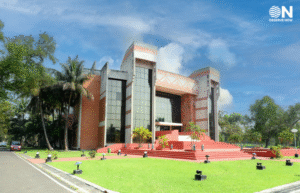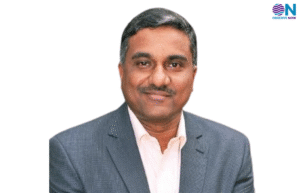In the first quarter of 2024, international tourist arrivals reached 97% of their pre-pandemic levels. According to UN Tourism, over 285 million tourists travelled internationally between January and March, marking a roughly 20% increase compared to the same period in 2023. This highlights the sector’s near-full recovery from the pandemic’s effects.
In an increasingly interconnected world, tourism has emerged as a potent tool for soft power, enabling nations to foster peaceful international relations and promote cross-cultural exchange. Beyond economic benefits, tourism plays a vital role in bridging cultural divides, fostering mutual understanding, and enhancing diplomatic ties.
Tourism enhances soft power to foster peaceful international relations, with the digital economy—especially innovations like virtual reality (VR) and AI uplifting the global tourism landscape to encourage cross-cultural exchange and strengthen diplomatic ties between nations. Governments and tourism boards can partner with tech companies to leverage data-driven insights, predicting and addressing potential cultural conflicts to ensure that tourism contributes to global peace and stability. In this context, ObserveNow Media interacted with Mugdha Sinha, Director General of Tourism at the Ministry of Tourism, Government of India, for further insights on the subject.
Below are the edited excerpts from the interview:
How can tourism be leveraged as a form of “soft power” diplomacy to foster peaceful international relations and cultural understanding in a world where geopolitical tensions are rising?
Tourism is the Archimedes lever for ‘soft power’ diplomacy borne on the wings of people-to-people connect that fosters better understanding of peoples, places, cultures and philosophies, bridging ideational divides and creating opportunities to learn from each other. Travel in today’s time and age powered by internet search is akin to an anthropological undertaking where our curiosity leads us to new destinations and we come back with our own first-hand experience of the place, its people, craft, cuisine and the like.
The impressions that we carry of the host through our ease of travel, access, connectivity, and reception and the impressions that we leave as a guest all count and contribute in overt and covert, tangible and intangible ways towards enhanced geopolitical understanding as we partake in global consumption of tourism services.
Vasudeva Kutumbhakam (The Whole World is One) was India’s civilizational talisman of earliest forays into the world, five thousand years before the word globalization was coined to embark on a borderless world for movement of men, materials and minds. The ideational map of the world stands transformed because of travellers. Buddhist philosophy reached the East because of emissaries from Ashoka’s court who carried the message far and wide, arousing the curiosity of Chinese travellers like Xuanzang and Fa-Hien to visit India.
No wonder, UN Tourism in recognition of the potential of tourism for world peace has very rightly focused this year’s celebrations around the theme of ‘Tourism & Peace’
In what ways is the digital economy, particularly advancements like virtual reality (VR) and AI, transforming the global tourism scenario to promote cross-cultural exchange and enhance diplomatic ties between nations?
Digital Economy has provided a great impetus to travel and tourism, leading to an enhanced visitor experience and improved quality of services, without dependence on human interface from the comfort of your homes. By easing access to information and third-party travel testimonials, facilitating online bookings for travel, accommodations and entertainment and the various digitally powered payment gateways and such like digital public infrastructure have enabled all kinds of purchases and shopping without having to worry about carrying hard currency. With digital solutions, the world is literally on your fingertips.
However, if I were to give you some specific examples to illustrate my point, from the very origin of the idea to travel- the search engine supported by AI and Generative AI and Chatbots is like a digital genie which provides answers to all our travel related queries. Moreover, it also has the power to nudge us with related information. Digital previews of destinations and cultural offerings are now available with 7D plus experiences. Aggregator sites like expedia.com, booking.com, yatra.com, trip advisor, clear trip, make my trip and such like for flight and accommodation bookings are run on AI/Gen AI for bespoke customer care and handling. Moreover, many countries now provide online E-Visas. Right from entry into airports (in India through Digi yatra App) to self-check-ins, to accessing rooms through smart keys or ordering food and payment in restaurants through QR code are some examples of how the digital technologies are making both travel and life easy, accessible and safe for all.
How can responsible tourism initiatives, supported by digital platforms, create more inclusive and peaceful interactions between tourists and local cultures, especially in areas with sensitive historical or political contexts?
In physical space design interventions can anticipate issues of crowds and their management, but when these issues are not preempted in architectural planning or programming, then creative digital solutions, now also through apps can be used for effective management to avert over-tourism at the cost of discomfort to local residents and communities.
Digital tech was used effectively by the Museum of the Future in Dubai when it sold out within three months of its opening through differential online ticketing and by opening the museum at night. Qatar airport through its design-digital intervention is another great example of how to do crowd management in public spaces.
Also in this age of infocalypse, infotainment is at your doorstep for all kinds of last-minute and crisis-related information/support, as is quantum marketing and targeted bespoke promotions aided by algorithms based on your search preferences.
Digital has made all of us feel at home and personally taken care of in normal circumstances and is equally effective in times of emergencies by allowing language/translation support, also.
In fact, new and emerging technologies elevate and support the global travel and tourism experience with maximum satisfaction to customers and the least disturbance to others, by minimizing human dependence, interface and queues with its attendant issues, making it a win-win for all.
In what ways can governments and tourism boards collaborate with tech companies to use data-driven insights to predict and mitigate potential cultural conflicts, ensuring tourism contributes to global peace and stability?
You will be happy to know that we are already engaged and collaborating with various tech solution providers for data-driven insights to improve the travel and tourism industry offerings for evidence-based policy interventions as also for creative solutions to anticipate a wide range of issues from over-tourism to responsible and sustainable tourism, as also for emergency crisis response and MOOCs capacity building.
We are in talks with VISA to be able to use their global customer spending trends in a systematic manner for various kinds of predictive behaviour-based decision-making. From Google Search Engine log shares to the passport and visa handling VFS, to entering into MoUs with booking platforms like cleartrip, ease my trip, make my trip etc for our revamped version of the Incredible India portal, the importance of data aggregation points for business analysis is imperative. Our statistical unit known as the MR division is also contemplating market research and surveys for a better understanding of our traveller profile and their travel preferences. Recently Trip Advisor has using their customer data, released a document on –‘How India Travels’ and we are open and receptive to more such collaborations to better understand our policy-making business side of travel and tourism from the eyes of our customers, in full acknowledgement of the old adage where the customer in King! And data is the new currency.























